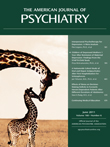In this impassioned book, Dr. Unaiza Niaz, Professor of Psychiatry and Director of the Institute for Psychological Trauma at the University of Health Sciences in Lahore, Pakistan, calls for compassionate awareness of the “silent sufferers” scattered throughout the Muslim world. That the majority of wars, insurgencies, and terrorist attacks today take place in the Muslim world is not coincidental, Dr. Niaz argues. She and several guest authors from Egypt, Lebanon, Algeria, and the Palestinian Territories offer explanations and perspectives regarding the roots and downstream effects of this violence as well as possible solutions.
The book begins with discussions of the psychological, historical, and political roots of terrorism. Multiple psychological theories are reviewed, most notably social learning theory and transgenerational transmission of trauma, with no consensus regarding the psychological makeup of a terrorist. The primary conclusion is, instead, that most terrorists are not mentally ill. Dr. Niaz asserts that fundamentalists who are frustrated by their oppressive home regimes wage war against Western-supported governments because they lack other means to express their frustrations with society. The authors give much more attention to the perceived historical and political causes of terrorism. Some of these views might cause discomfort for Western readers, including this reviewer. For example, despite hard evidence to the contrary, including bin Ladin's own claim of responsibility, Dr. Niaz sees it as a “strong possibility” that the attacks of September 11, 2001, may be linked to a communist or fascist group or “a secret group in another state” rather than to al-Qaeda (p. 53).
She also argues that too much attention is paid to the events of 9/11 and not enough to “the worst degree of terrorism from [by] the powers who claim to bring peace and justice to the world” (i.e., the United States and those collaborating in U.S. coalitions) but who end up amassing Muslim casualties in the process. While Western governments label such casualties “collateral damage,” Muslim civilians label them victims of “terrorism.” In her view, Western-sponsored wars designed to end terrorism instead create more terrorists by traumatizing populations. Other Western actions, including colonialism, support for oil-rich but oppressive regimes, and support for Israel also play important roles in tilting some Muslims toward fundamentalist views of Islam that encourage armed struggle against the West. In the author's view, the United States is no longer a moral leader but is spearheading human rights violations against Muslim populations.
Supported by quotes from the Koran, Dr. Niaz and her guest authors unequivocally assert that Islam is a peaceful religion in which terrorism has no place. To the author's credit, she does include (but does not support) opposing views from militant Islamic leaders who endorse violent acts, such as suicide bombing, and justify these acts with quotes from the Koran. These opposing views left this reader wanting to know more about the struggle within Islam between more moderate and fundamentalist forces.
The book provides excellent reviews of the psychosocial effects of war and terrorism on the civilian populations of Pakistan, Afghanistan, Kashmir, Palestine, Lebanon, Algeria, Bosnia, Chechnya, and Iraq. The authors draw attention to multiple research studies documenting the high prevalence of posttraumatic stress disorder, other anxiety symptoms, and depression in these civilian populations, most of which have been published in major North American and European mental health journals. In addition to mental health symptoms, poverty, environmental destruction, physical disability, and hopelessness are rampant. Dr. Niaz rightfully concludes that “in armed conflicts, no one is a winner but everyone is a victim” (p. 63).
Dr. Niaz devotes special attention to women, who find the strength to lead and provide for their families while their husbands are on the battlefield. Women find this strength through solidarity with a political (and sometimes military) cause, religion, group cohesion, and a genuine hope for a better life. Many women have a particularly difficult time when they do not agree with fundamentalist Islamic rules that force them to conform to restrictive dress codes and prohibit them from working or going out in public.
To ease the effects of violence on Muslim populations, Dr. Niaz offers several solutions. She describes model treatments, mostly cultural adaptations of Western models, which might help many people but are neither sufficiently effective nor widespread enough to significantly decrease the suffering caused by war. Realizing this, Dr. Niaz puts most of her emphasis on the need for political solutions, mainly primary prevention of war. She acknowledges the need for mainstream Islam to succeed against fundamentalist Islamic groups, and she asserts that a loosening of the clerical grip on the political process with a “demarcation of the state from religion” needs to happen in order to make life more tolerable for women. She asks health professionals around the globe to promote peace, tolerance, and justice.
Despite my disagreements concerning important historical and political issues, I found it highly informative to hear the perspectives of a psychiatric colleague from the Muslim world. Dr. Niaz is a member of the American Psychiatric Association, Fellow of the Royal College of Psychiatrists London, and Chair of the Section of Women's Mental Health of the World Psychiatric Association. She trained at the Royal Free Hospital, the Tavistock Clinic, and the Johns Hopkins University. Dr. Niaz accomplishes her goal of illuminating suffering and makes a genuine plea to create peaceful dialogue, a necessary step in conflict resolution, with the West. This plea should be heard. What the reader should not expect to find are answers on how to proceed when dialogue goes sour and justice for one group is seen as victimization by the other. Recent turmoil in Muslim lands, bringing with it opportunities for either heightened conflict or conflict resolution, makes this book especially timely.

